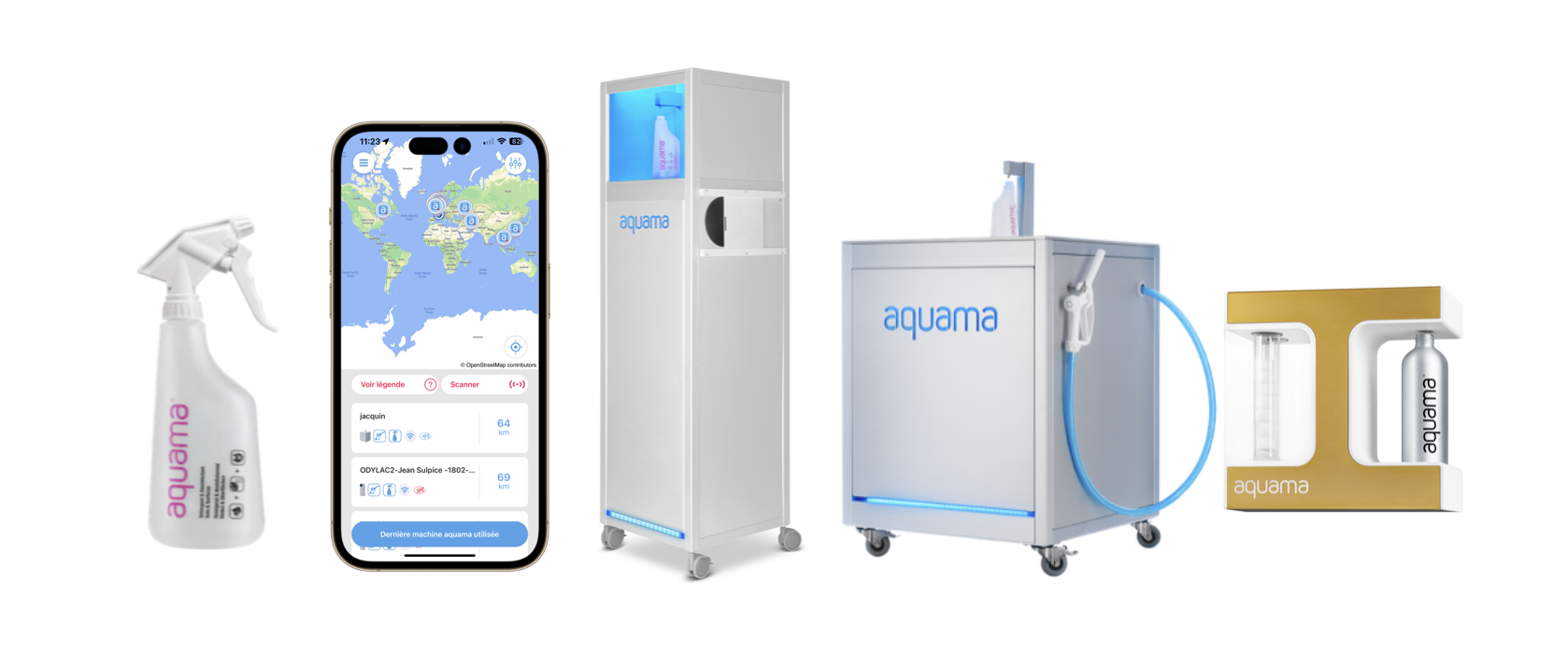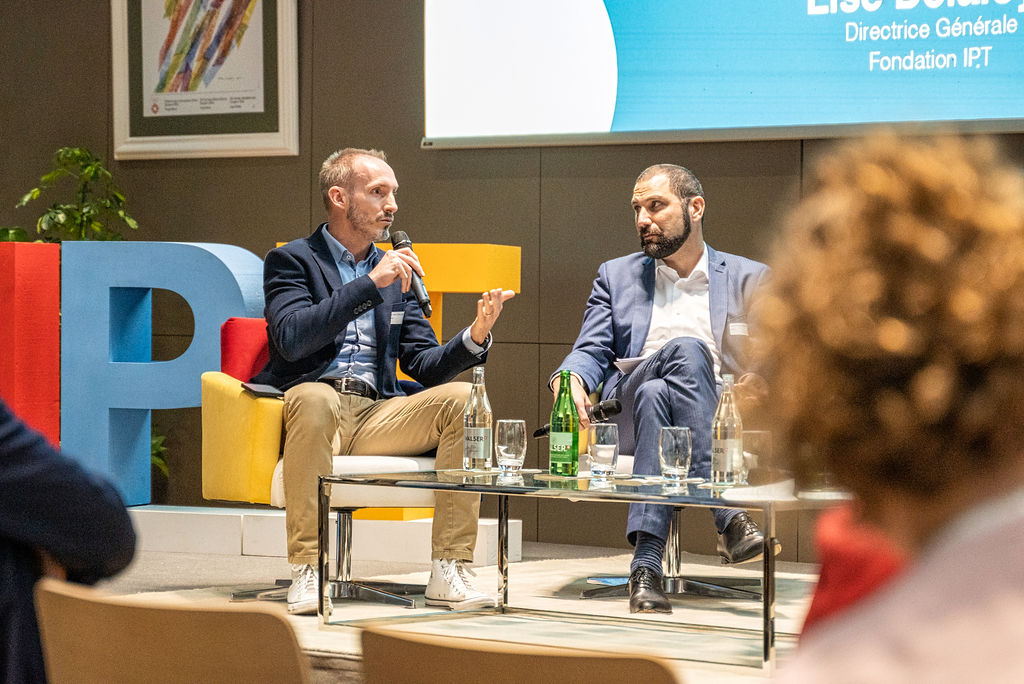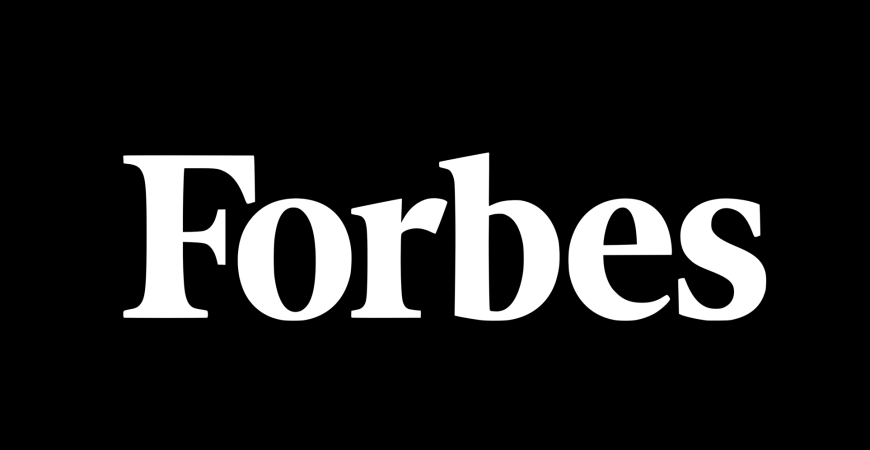FORBES Magazine - The Founder's interview
Detergent and Disinfectant Solutions: History and Technology
Switzerland, 2013. As preparations for COP 19 in Warsaw were underway, Willy Lionel Pomathios decided to embark on entrepreneurship with a ready-to-go business model and strong ecological convictions. His goal was not simply to create a company, but to actively contribute to the environmental transition — a necessity that had deeply touched him since the birth of his son in 2006. Aware that he would not have enough time in his professional life to accomplish everything Aquama inspired him to do, he nevertheless took the leap, knowing that the essential thing was to start building.
Thus began two years of technological development to design a solution capable of replacing chemical products with sustainable alternatives in our daily lives. Aquama machines allow the creation of eco-responsible detergents and disinfectants using only water, salt, and electricity. The solutions produced by these machines meet all hygiene and health standards without displaying any hazard pictograms, making them safe even for nurseries. In terms of carbon footprint, the results are striking: an average household using Aquama generates only 0.06 kg of CO₂ equivalent per year for its cleaning products, while a single liter of chemical detergent represents more than 2 kg of CO₂ equivalent. This is undeniable proof of the considerable environmental impact of this solution.
Facing competition from chemical industry giants, Aquama addresses both individuals and professionals. Very quickly, organizations such as the Olympic Committee and Geneva Airport placed their trust in the start-up. In this “B2B” model, the system is tripartite, much like Airbnb or Uber: Aquama positions itself as the intermediary, the distributor client owns the machine, while the end-user consumes the solution it produces.

Circular Economy and Carbon Credits: The Aquama® Concept
Aquama places great importance on offering systems that maximize CO₂ savings while generating revenue for its operators. The company has developed an operating system that automatically updates the machines’ information systems. When hardware updates are required, Aquama collects the devices to perform the modifications — a more virtuous approach than outright replacement, which would carry a considerable carbon cost.
In this spirit of circular economy, and following a request from Geneva Airport, Willy Lionel devised a way to give financial value to the use of this solution. Drawing on what he calls “écono-logy,” he created a token system that led to the creation of the “Aquama coin.” The objective is clear: to create an ecological currency with both cost and exchange value in the future, while allowing clients to be rewarded with carbon credits.
This tripartite model enables blockchain integration in each machine. Thus, the end-user, by consuming Aquama solutions, is allocated a number of “Aquama coins,” which can be exchanged for carbon credits. This currency will be linked to the Swiss Carbon Credit Bank. The Aquama brand is registered not only for cleaning and disinfection products but also for its financial aspect.
 A Clear Vision: Eco-Responsible Cleaning and Disinfection
A Clear Vision: Eco-Responsible Cleaning and Disinfection
This global and economic approach to environmental transition requires significant investment. Present in Europe — Switzerland, France, and Germany — the start-up quickly scaled up, expanding to Asia, the Pacific region, as well as the United Arab Emirates and Saudi Arabia through partnerships. In 2025, the company will focus its efforts on the United States, after being selected by the U.S. “Select USA” program.
It is precisely this alliance between ecology and economy that allows Aquama to gain the trust of government institutions. After difficult moments linked to the COVID crisis and the closure of their French distributor in 2023, the company now sees a clearer horizon ahead. Facing such fluctuations, Willy Lionel chooses to adapt without panic. “A company is like breathing: you must inhale before you exhale. We alternate between difficult moments and moments of ultimate satisfaction, always shared in a strong collective spirit,” he says with a smile.
Constant adaptation is key for Aquama, relying on teamwork and a deep commitment to its principles. The company regularly reassesses its ecological impact by recalculating its carbon footprint.
Conclusion
By staying true to its environmental values, Aquama has succeeded in offering a reliable solution with an extremely low carbon footprint in the cleaning sector, for both professionals and individuals. With its solid business model and financial innovations tied to ecology, Aquama spreads its convictions on a large scale and contributes effectively to the transition towards a more sustainable world.
Source: FORBES France


